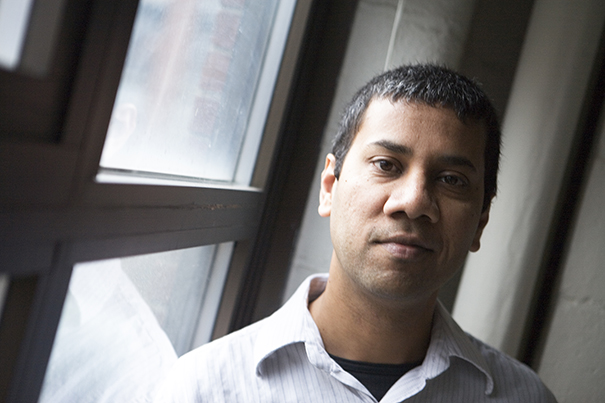Health
-

Six cancers rising faster in younger adults than older ones
Large new global study fuels growing concern over trend of increases in several types

-

What’s next for GLP-1s?
Scientists eye new treatment targets for popular weight-loss drugs, from heart failure to addiction
-

Pricey blockbuster GLP-1s are costing users — and most of the rest of us, too
Health insurers are passing along cost for coverage in form of higher rates across the board, policy researcher says
-

Drinking 2-3 cups of coffee a day tied to lower dementia risk
Caffeinated tea also found to slow cognitive decline in study

-

New AI tool predicts brain age, dementia risk, cancer survival
Unlike other AI models, BrainIAC needs limited data to ID key neurological health indicators

-

It’s time to get more comfortable with talking about dying
Palliative care physicians offer advice for end-of-life conversations between patients, loved ones
-
Spotting speedy brain activity
Using ultra-fast MRI scans, scientists are able to track rapid oscillations in brain activity that previously would have gone undetected, a development that could open the door to understanding fast-occurring cognitive processes that once appeared off-limits to scientists.
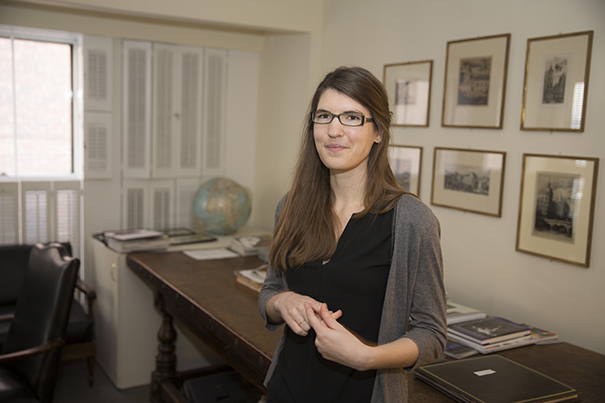
-
Love interrupted
A new study by researchers at Beth Israel Deaconess Medical Center examines the neuroanatomy behind delusional misidentification syndromes.

-
Topical treatment clears precancerous skin lesions
Harvard researchers at Massachusetts General Hospital have found a topical chemotherapy and an immune-system-activating compound that is able to rapidly clear actinic keratosis lesions from patients participating in a clinical trial.
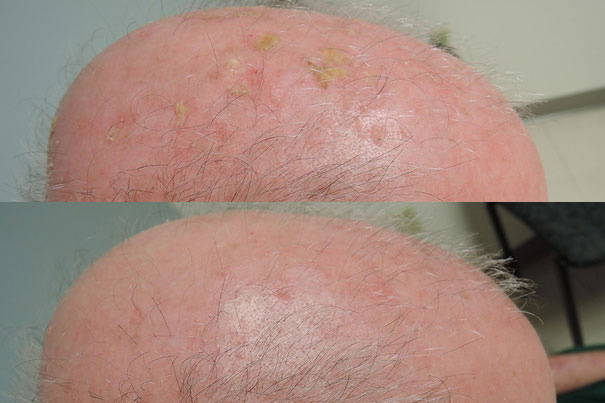
-
Better days for Boston cyclists
Boston has become a safer place for bicyclists as it has improved its infrastructure, a new study from the Harvard T.H. Chan School of Public Health says, with the chances of being injured in a bicycle accident falling 14 percent a year between 2009 and 2012.

-
Longer use of pain relievers tied to hearing loss in women
A Harvard study has found that women who used ibuprofen or acetaminophen for six years or more were at higher risk of hearing loss than those who used these medications for a year or less.

-
How power of positive thinking works
A Harvard study shows that although an optimistic outlook may help women live longer, one other possibility is that higher optimism directly impacts our biological systems.

-
Fresh ways to fight cancer
Cancer patients have new weapons on their side, provided by targeted drug therapy and, more recently, immune therapy. Now, the recent discovery of large numbers of noncoding RNA that are active in disease provides a new opportunity to both understand and fight cancer, according to Pier Paolo Pandolfi, professor at Harvard Medical School and director of the Cancer Center and Cancer Research Institute at Beth Israel Deaconess Medical Center.
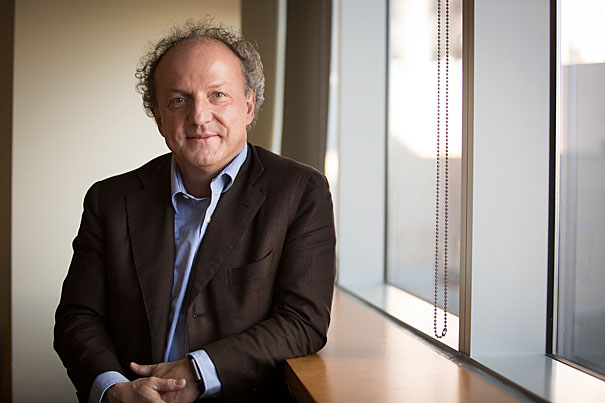
-
Can happiness lead toward health?
A new Harvard center on health and happiness had its academic coming-out party Friday, hosting a daylong symposium that highlighted what science does and doesn’t say about the interaction of health and happiness, and identifying pathways where investigators should probe next.
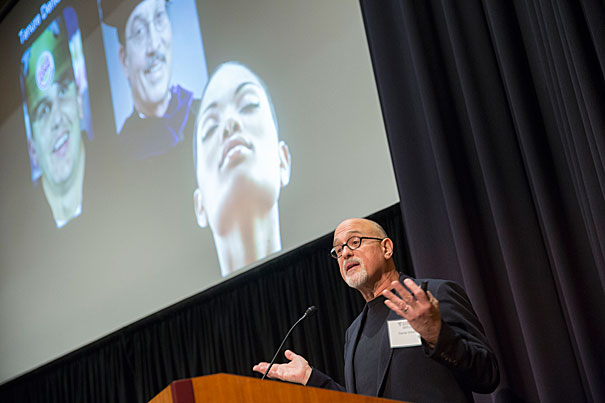
-
Hunger for change
A panel sponsored by the Harvard Law School’s Food Law and Policy Clinic and the Union of Concerned Scientists brought food luminaries to talk about the need for a national food policy.
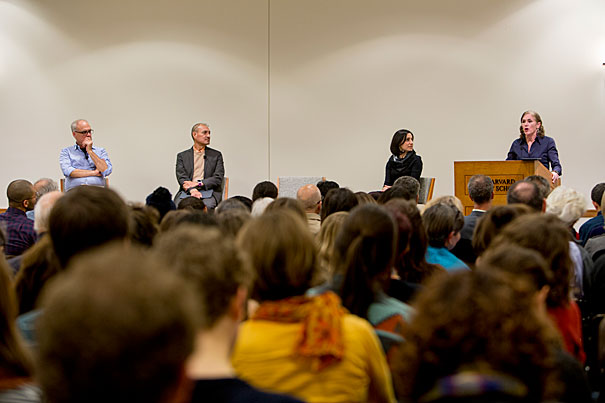
-
How Zika infects the growing brain
Studies have suggested that the Zika virus enters neural progenitor cells by grabbing onto a specific protein called AXL on the cell surface. Now, scientists at the Harvard Stem Cell Institute and Novartis have shown that this is not the only route of infection. The scientists demonstrated that Zika infected neural progenitor cells even when the cells did not produce the AXL protein.
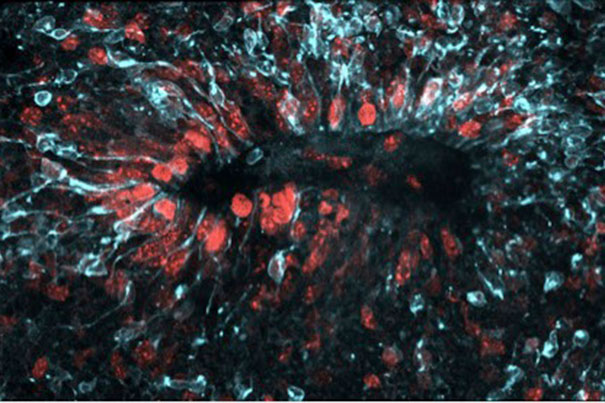
-
Colorful clones track stem cells
Harvard Stem Cell Institute researchers have used a colorful cell-labeling technique to track the development of the blood system and trace the lineage of an adult blood cell traveling through the vast networks of veins, arteries, and capillaries back to its parent stem cell in the marrow.

-
A hydrogel that helps stop uncontrolled bleeding
Harvard researchers have developed a hydrogel that can be easily injected into blood vessels, helping to stop uncontrolled bleeding even in patients on blood-thinners or with bleeding disorders.
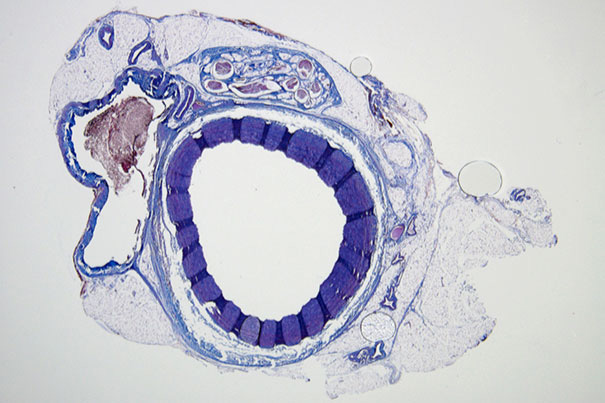
-
Updating embryo research guidelines
Scientists and ethicists gathered at Harvard Law School to discuss the ethics of human embryo experimentation and whether a two-week developmental time limit on their use is appropriate any longer.
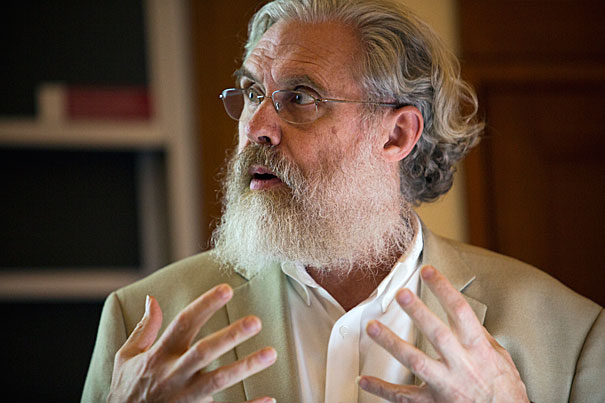
-
What do we know about suicide? Not nearly enough
Despite decades of research aimed at understanding suicide, scientists are no better at predicting self-harm than they were a half-century ago.
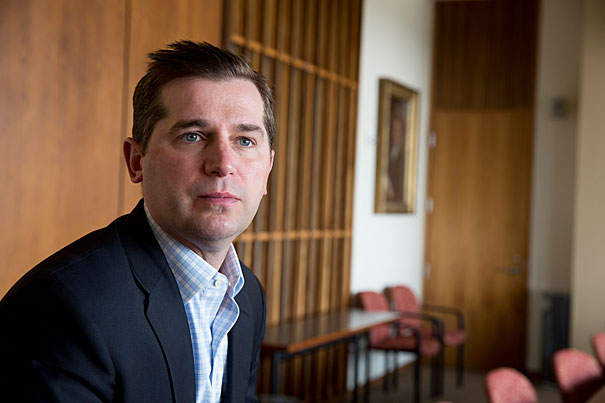
-
In lost toes, a stirring Shackleton subplot
New research highlights the skill and poise of doctors who tended to stranded crewmen in the famed Shackleton saga.
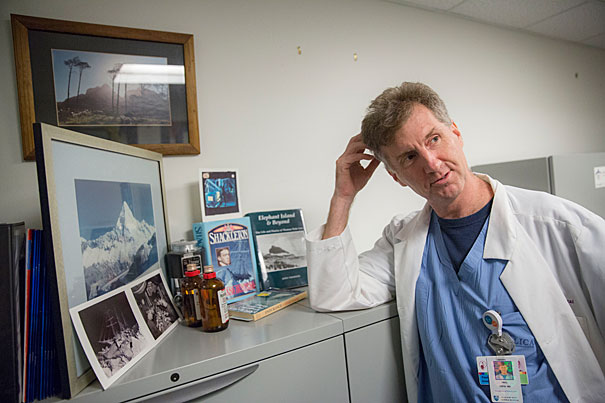
-
Science of stripes
Scientists have shown that to interrupt the development of pigment cells that form their stripes, African striped mice and chipmunks both use a gene that until now had been associated primarily with cranio-facial development.

-
Recommendations to aid NFL players’ health
A new Harvard report addresses legal and ethical factors affecting the health of players in the National Football League, and makes recommendations to improve it.

-
Tackling blood diseases, immune disorders
Startup Magenta Therapeutics licenses technologies from Harvard, Massachusetts General Hospital, and Boston Children’s Hospital that could help transform treatment.
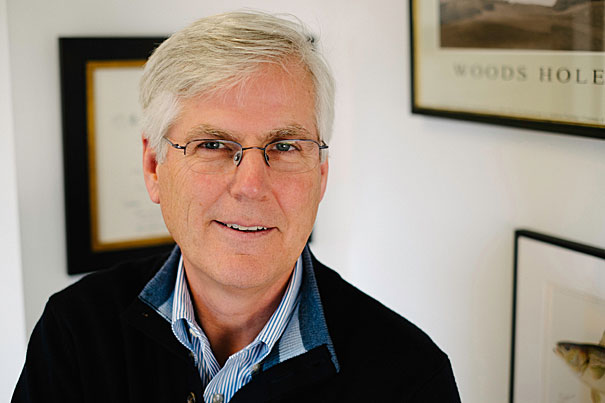
-
‘DNA is not destiny’
A new study examines whether lifestyle changes can offset genetic risk of heart disease.

-
Creating a smoking machine
Researchers at Harvard’s Wyss Institute have developed an instrument that smokes cigarettes like a human, and delivers whole smoke to the air space of microfluidic human airway chips. The machine may enable new insights into how nonsmokers and COPD patients respond to smoke.
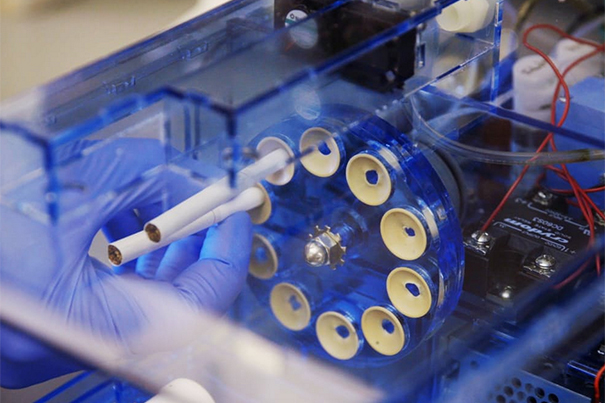
-
New approach to cancer treatment carries success with caveat
Restoring the cancer-killing zeal of T cells is being seen as one of the most successful new approaches to cancer treatment in nearly a decade, although researchers note it has shown effectiveness in only about a quarter of cases.
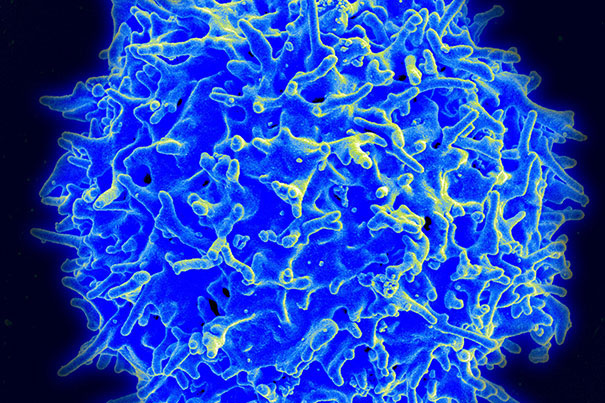
-
The first fully 3-D-printed heart-on-a-chip
A new approach to manufacturing organs-on-chips developed by Harvard researchers could cut the length and cost of clinical trials significantly.

-
Cervical cancer screening could be less frequent, start later
A Harvard Chan School study suggests that relaxing current U.S. guidelines could provide greater health benefits with less harm and for less money in women who are vaccinated against human papillomavirus.
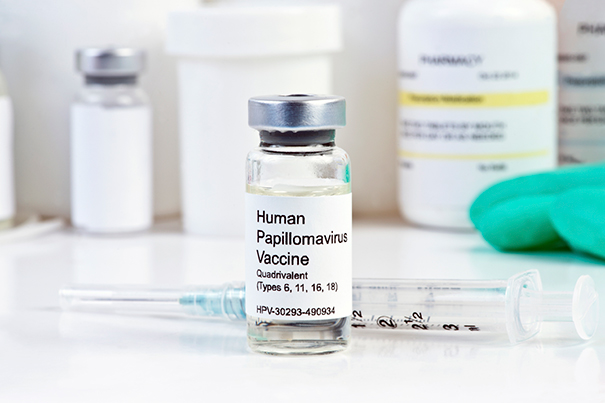
-
The knotty problem of bringing regenerative medicine to market
Leaders from the scientific and business world gathered at Harvard Business School on Oct. 6 to examine regenerative medicine’s scientific and commercial promise.

-
Toxic inequality
According to Harvard sociologist Robert Sampson’s theory of “ecology of toxic inequality,” higher lead levels in the blood are often directly tied to racial and ethnic segregation.

-
Medical hope on horizon
Stem cell science is accelerating development of therapies for diabetes, ALS, other diseases, researchers tell HUBweek sessions.

-
Peeking between memory and perception
Your brain is able to stitch together a coherent 360-degree panorama of the world around you, and now researchers are beginning to understand how.

-
Changes in memory tied to menopausal status
By studying women ages 45 to 55, investigators at Harvard-affiliated Brigham and Women’s Hospital have found that reproductive stage, not simply chronological age, may contribute to changes in memory and brain function.
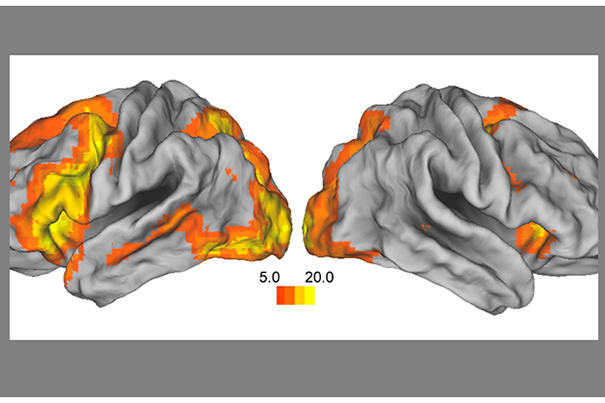
-
Giving weight too much weight
Programs to combat obesity may be aggravating eating disorders and undermining their severity, said experts during a panel discussion hosted by Harvard T.H. Chan School of Public Health.
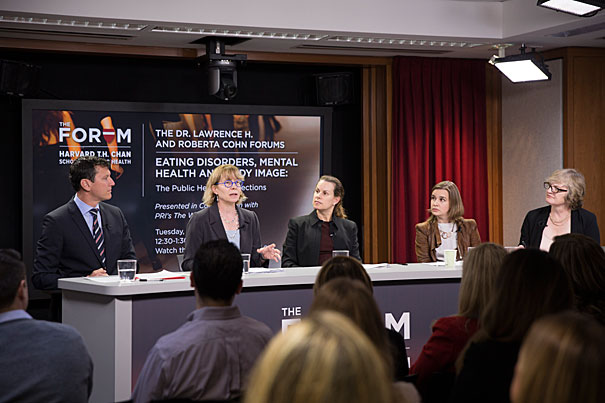
-
Teaching computers to identify odors
Using a machine-learning algorithm, researchers were able to “train” a computer to recognize the neural patterns associated with various scents, and identify whether specific odors were present in a mix of smells.
